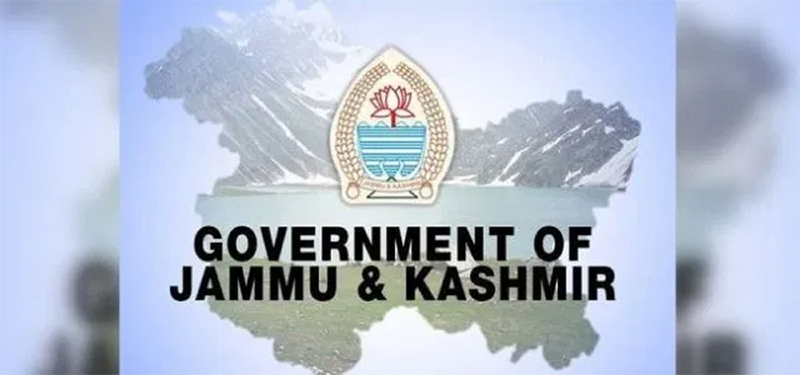Two FIRs lodged by CBI in arms license case
*As per SC judgment, no formal permission required now
Mohinder Verma
JAMMU, June 23: The Government of Union Territory of Jammu and Kashmir is not furnishing requisite information to the Department of Personnel and Training (DoPT) of Government of India as such creating hurdles in grant of prosecution sanction against the All India Service officers of J&K Cadre (now AGMUT) who have been booked by the Central Bureau of Investigation in the arms license case.
However, the legal experts are of the opinion that formal prosecution sanction is not required now in the light of the Supreme Court judgment in case titled Dr Subramanyam Swamy Versus Dr Manmohan Singh whereby it was held that if the sanction is not granted within three months after the filing of application the same shall be considered as deemed sanction.
The arms license case of Jammu and Kashmir was handed over to the Central Bureau of Investigation (CBI) on the basis of a recommendation from Rajasthan Director General of Police after the Anti-Terror Squad had busted a racket related to the matter.
The premier investigating agency of the country had registered two FIRs—RCCHGO51201800007 and RCCHG0512018500006 in pursuance of notification issued by the Government of India with the consent of Jammu and Kashmir Government and after taking over investigation of FIR No. 18 of 2018 dated 17.05.2018 earlier registered at Police Station Vigilance Organisation Kashmir (VOK) on the allegations that during the period between 2012 and 2016, the then Deputy Commissioners of various districts of J&K had fraudulently and illegally issued bulk arms licenses in lieu of monetary considerations.
Recently, Advocate Sheikh Shakeel Ahmed filed application under Right to Information Act with the Central Public Information Officer (CPIO) in the office of Secretary, Department of Personnel and Training, Government of India seeking copy of the decision taken upon receipt of File No.GAD (Vig) 10-SP/2020-CBI dated April 9, 2021 in two CBI FIRs relating to arms license case.
The applicant also sought copy of the order whereby prosecution sanction has been accorded by the DoPT in respect of these two FIRs and reasons in case no decision has been taken.
In response to the RTI application, Surya Naryan Jha, Under Secretary and CPIO, who deals with the proposal of sanction for prosecution against IAS officers under Prevention of Corruption Act only, has mentioned, “no proposal for sanction for prosecution of any IAS officer of J&K Cadre (now AGMUT) was under consideration or pending in this department”.
“However, it is pertinent to mention here that proposal regarding which information is sought, received in this department, was returned to the J&K Government vide letter dated December 31, 2021, due to lack of some information under Single Window System and the same is not re-submitted by the Government of Jammu and Kashmir”, read the reply, the copy of which is available with EXCELSIOR.
About the information vis-à-vis officers involved in the arms license case, the CPIO states: “The information was sent by the CBI/State Investigating Agencies to this department under ‘Secret/Top Secret’ category. Therefore, details of the cases submitted by the Central Bureau of Investigation/State Investigating Agencies seeking sanction for prosecution against IAS officers under Prevention of Corruption Act is exempted under Section 8(1(h) of the RTI Act, 2005 and which may pose impediment to the prosecution”.
“It is really a matter of serious concern that earlier DoPT remained silent on the GAD File dated April 9, 2021 for several months and now the J&K Government is showing reluctance to furnish requisite information to the DoPT since December last year”, sources said.
However, legal experts are of the opinion that no formal prosecution sanction is required by the Central Bureau of Investigation in the light of the Supreme Court judgment in Dr Subrahmanyam Swamy Versus Dr Manmohan Singh case.
“Any proposal for prosecution sanction placed before any Sanctioning Authority, empowered to grant sanction for the prosecution of a public servant under Section 19 of the Prevention of Corruption Act, must be decided within a period of three months of the receipt of the proposal by the concerned authority”, the Apex Court has mentioned in the judgment, adding “if any consultation is not possible within the three months, an extension of one month period may be allowed, but the request for consultation is to be sent in writing within the three months”.
“At the end of the extended period of time limit, if no decision is taken, sanction will be deemed to have been granted to the proposal for prosecution and the prosecuting agency or the private complainant will proceed to file the chargesheet in the court to commence prosecution within 15 days of the expiry of the time limit”, the judgment further read.


